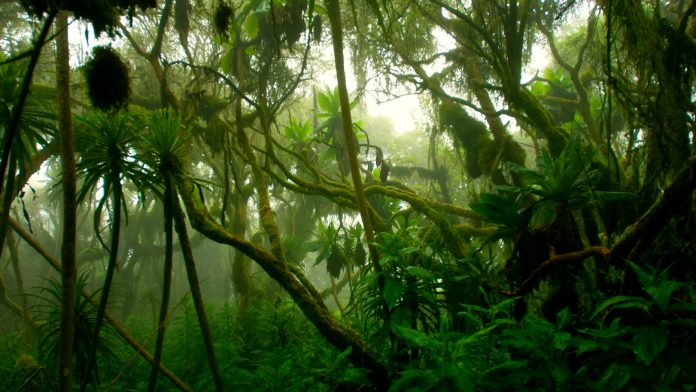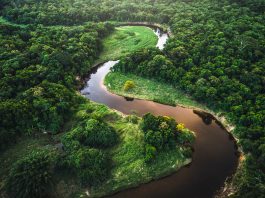BarcelonaTech (UPC) participates in the XPRIZE Rainforest international competition to help to protect the biodiversity in rainforests.
BarcelonaTech (UCP), in collaboration with scientists from the Massachusetts Institute of Technology in the US, the Instituto de Desenvolvimento Sustentável Mamirauá in Brazil, and the Delft University of Technology in the Netherlands, are cooperating on a project to develop a technology that will revolutionise the protection of biodiversity in rainforests.
The project participates in the XPRIZE Rainforest, a $10m international competition aiming to transform our understanding of the complexity of rainforests and shed light on the importance of protecting their biodiversity.
BarcelonaTech (UPC), is the only Spanish team among the 36 international groups from 18 countries selected to participate in the XPRIZA Rainforest. Promoted by the XPRIZE Foundation, the $10m XPRIZE Rainforestis a five-year competition that challenges scientists around the world to develop novel technologies to rapidly and comprehensively survey rainforest biodiversity and use that data to improve our understanding of this ecosystem and protect its biodiversity.
The XPRIZE Rainforest also promotes business investment to develop new, just and sustainable bioeconomies. Teams competing in the XPRIZE Rainforestare required to develop a technological solution to survey the most biodiversity contained in 100 hectares of tropical rainforest in 24 hours and produce impactful insights within 48 hours. The deadline for developing and presenting the entries is spring 2023, then 10 teams will advance to finals. In late April 2024, the winners of the first, second and third prizes will be announced.
Preserving the value of rainforests from deforestation
Rainforests are critical to the survival of the human race. They play a key role in stabilising the climate by absorbing CO2 and releasing the oxygen on which we depend. They cover less than 10% of the Earth’s land surface, but they house some 50 million inhabitants and over 50% of the planet’s biodiversity.
Although they are the most biodiverse ecosystems, scientists have a limited knowledge of them. The value of the trees and the species that live there is not fully realised and our ability to learn more is restricted since the rainforest environment is very dense, vast and complex.
Protecting these ecosystems from deforestation is therefore more necessary than ever. The rapid disappearance of tropical forests is also leading to the extinction of an alarming number of species. Despite all this, adequate tools and methods have still not been developed to monitor the conditions of present wildlife at the speed and scale that is required to effectively mitigate their decline. However, technology can help to expand this knowledge and reveal unknown aspects.
Listening to species using sensors, drones, and robotic technology
Providence+ aims to ‘take the pulse’ of rainforests utilising a set of specific bio-indicators to monitor species in real time. This will help to assess population dynamics and the eco acoustic indices of the biodiversity in rainforests.
This project was preceded in 2016 by technology developed by the UPC’s Bioacoutic Applications Laboratory (LAB) and the Instituto de Desenvolvimento Sustentável Mamirauá within the framework of the Providence+ initiative to monitor and understand wildlife. A network of sensors is currently and constantly monitoring the biodiversity under the canopy of tropical forests.
The system also identifies, through images and sounds, a large number of species, more than any other technology has been able to achieve so far. With wireless data transmission and low energy consumption, it is designed to operate for long periods of time with no demand for maintenance.
Now the Providence+ scientific team will enhance the function of the current nodes and include computer vision techniques to identify plants in these forests.
Environmental DNA exploration technology to preserve biodiversity in rainforests
They will also introduce non-motorised robots and drones to monitor hundreds of species in real time, without human input on site. The new sensor system will incorporate environmental DNA exploration technology (to explore air, water and soil) to detect the historical presence of both animal and plant species based on samples that may contain fur, feathers or tracks.
Researchers also plan to scale up the implementation of Providence + nodes in other rainforest regions and other similar biomes. The sustainable use of this new technology, within a responsible bioeconomy, will improve research and protect rainforest health.
An investment of more than €1.5mis required to develop the technologies for Providence+. Therefore, the UPC has launched a fundraising programme for the purpose of channelling contributions from private investors, sponsors, and donors.
An interdisciplinary and international team
Providence+ is coordinated by researcher Michel Andre director of LAB, a pioneering centre in monitoring biodiversity and the effects of climate change and human activities on the planet’s most fragile habitats. Linked to the UPC’s Volanova I la Geltru School of Engineering (EPSEVG), LAB has developed the world’s largest bioacoustic database, from the deep ocean to the Amazon rainforest, allowing real-time visualisation and monitoring of wildlife and biodiversity worldwide.









